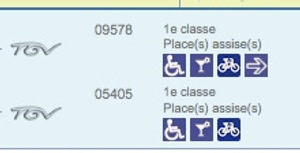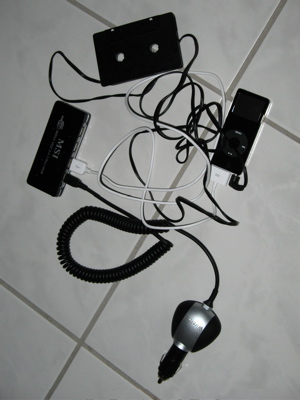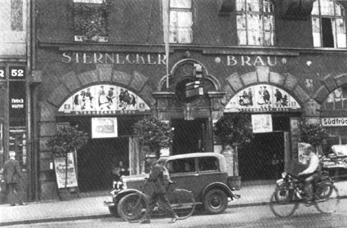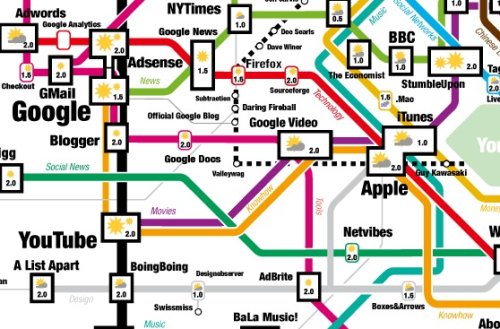I recently mentioned flickr's questionable take on German laws by heavily restricting their German users' access to all pictures marked "moderate" or "restricted" on their service. While they recently removed the restriction for "moderated" pictures, a lot of users have lost trust in the service, mainly for their apparent inability to communicate with their user base and their failure to discuss significant changes before they happen.
Many paying users (the "against censorship" group on flickr has about 13.000 members) are considering not to prolong their "pro" accounts there, and are looking for other alternative photo sites on the web. In other words, flickr has harmed its reputation as a definitive address for photo sharing on the Internet, much to the delight of their competition.
One of the services that seems to have benefit the most is Ipernity, a quite young French photo sharing site. They currently get "700 new users a day", says their CEO Christian Conti (link, [German]). I got myself an account as well, to try it out until my flickr pro account expires at the end of the year and I need to make a decision where to keep my stuff in the future.
Ipernity is a "flickr clone", which is pretty obvious when you compare the looks of the two pages:

 Still, Ipernity has several points worth mentioning distinguishing it from the Yahoo product:
Still, Ipernity has several points worth mentioning distinguishing it from the Yahoo product:
- Ipernity allows you to share not only pictures but also videos and audio files. This comes in very very handy when you happen to take a little video with your digital camera, or if you want to share a song with your friends. I, for example, uploaded the German national anthem for my non-German friends to hear, if they like.
- Ipernity features a blog. Of course, a lot of us have blogs already, but it makes it easy for people who don't, to publish their thoughts and illustrate them with their own photos right away.
- It has a bunch of nice features, such as a variety of upload possibilities (including direct URL download or ZIP file upload), which leaves little to be desired.
- Users can customize their personal pages. This is clearly myspace-like (and I admit I don't think I will do that) but many people seem to like it.
However, there are also some drawbacks:
- Ipernity doesn't have groups yet. This feature is apparently "coming soon", though. (Update: It's here, see below)
- Sometimes (yet very rarely) the site's localization is sketchy: I stumbled across a button once that said "Oui", in the English language version I am using. But actually, that made me smile rather than frown upon the apparently missing translation.
- The upload restriction for the "pro" accounts is one gigabyte per month. That's a lot, but for real "power users", that might not be enough.
- At last, while their user base is growing rapidly, the community is nowhere near as big as flickr.
All in all, Ipernity is a pretty good alternative to flickr: Its major advantage is that it brings together what belongs together: Audio, video, pictures and blog entries, with comments, ratings, favorites and of course RSS feeds etc. all over the place. There is an aspect of community orientation and interactiveness that flickr seems to have lost out of its sight since it was acquired by the big Y. Ipernity may have a small user base only at the moment, but they are growing constantly and arguably, a few thousand active users are better than a million not caring.
Still, Ipernity's future remains open: Will they be able to pay for their growing infrastructure/bandwidth, etc.? Can they scale their service in a manner painless for the users? And if/when they move into the focus of some big company looking for the next acquisition for their Web 2.0 portfolio, will they keep their integrity even if they sell?
The bottom line is: flickr has shown us in Europe what not to do with a Web 2.0 company. Now there are competitors out there that have more features, are more community-friendly and have been given an "invitation" by flickr to do a lot of things better.
If people like the Ipernity guys actually jump at this chance, and how they'll perform, is one of the most exciting questions on the web in the near future and something I'll certainly watch closely.
Update: A while ago, ipernity has released a group feature that works nicely and has since gained many users. Go take a look!
Read more…
 After German phone carrier T-Mobile has recently started selling the unlocked iPhone for the ridiculous price of 999 Euros, now also Orange in France published their price for the unlocked version of the Apple cellphone: 749 Euros. Luckily for Germans, the EU is a customs union, so they can pretty easily order it in France and have it shipped to Germany -- even the higher shipping won't make up for the 250 Euro difference.
After German phone carrier T-Mobile has recently started selling the unlocked iPhone for the ridiculous price of 999 Euros, now also Orange in France published their price for the unlocked version of the Apple cellphone: 749 Euros. Luckily for Germans, the EU is a customs union, so they can pretty easily order it in France and have it shipped to Germany -- even the higher shipping won't make up for the 250 Euro difference.









 When flickr recently stopped showing "moderate" (possibly offensive) and "restricted" (not for children, or your mom) pictures in Germany, people started complaining about arbitrary censorship. Yahoo!/flickr responded, this was due to strong age verification laws in Germany.
When flickr recently stopped showing "moderate" (possibly offensive) and "restricted" (not for children, or your mom) pictures in Germany, people started complaining about arbitrary censorship. Yahoo!/flickr responded, this was due to strong age verification laws in Germany.